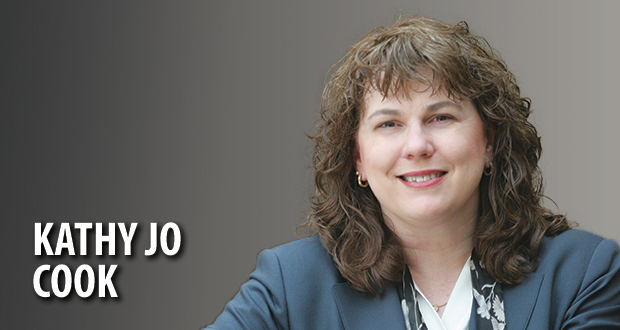 A surgeon who brought a discrimination suit against the hospital where she used to work was entitled to discovery of allegedly defamatory communications between her former supervisor and another hospital that subsequently rejected her application for credentials, a U.S. magistrate judge has ruled.
A surgeon who brought a discrimination suit against the hospital where she used to work was entitled to discovery of allegedly defamatory communications between her former supervisor and another hospital that subsequently rejected her application for credentials, a U.S. magistrate judge has ruled.
Plaintiff Deepa Soni, formerly a neurosurgeon at Berkshire Medical Center in Pittsfield, Massachusetts, sought production of communications between Berkshire’s chief of surgery, who was also a defendant in her lawsuit, and Catholic Medical Center in Manchester, New Hampshire, which denied her credentials three years after she left Berkshire. Soni was apparently told the communications played a role in Catholic Medical Center’s decision.
Catholic Medical Center, a third-party witness in the case seeking to shield the documents from production, argued that a federal common-law “peer review” privilege based on New Hampshire’s “quality assurance privilege” law protected the communications.
But Judge David H. Hennessy disagreed.
“[O]ther courts in this Circuit addressing the issue have … refused to recognize a medical peer review privilege in the context of federal discrimination claims, highlighting the fact that the ‘disclosure of documents and information bearing primarily on employment issues does not materially conflict with the fundamental objectives of promoting quality health care served by the peer review principle,’” Hennessy wrote, quoting Krolikowski v. Univ. of Mass., a 2001 U.S. District Court decision from Massachusetts. “This court finds the reasoning in these opinions sound and will not take a different approach.”
The 10-page decision is Soni v. Wespiser, et al.
Policy interest
Plaintiff’s counsel Kathy Jo Cook of Boston said there was “no reason whatsoever” that the judge should have allowed Catholic Medical Center to withhold the communications in question.
“In the context of a medical-malpractice case, there may be an argument [for the peer review privilege],” she said. “It allows doctors to discuss what went wrong, what happened, and how they can do better next time without having to worry that it’ll be disclosed to a plaintiff, who says, ‘Aha! We know what you did wrong!’”
Here, on the other hand, there would be no public policy interest at all, she said. Instead, Cook said, depriving a plaintiff of this type of information would just perpetuate discrimination.
David C. Harlow, a health care attorney, consultant and blogger in Newton, Massachusetts, said when determining whether to recognize a state privilege under federal common law, the 1st U.S. Circuit Court of Appeals looks to determine if the federal interest outweighs the state interest.
“Where, as here, the federal interest is protecting individuals against race and gender-based discrimination in employment, the peer review privilege doesn’t stand a chance,” he said.
Laura R. Studen, an employment lawyer in Boston, agreed.
“[The hospital] cannot use peer review privilege as both shield and sword, given the nature of [the plaintiff’s] claims and where the proof may likely be uncovered,” Studen said. “Shielding it serves no public interest. In fact, the opposite is true where she has credible claims of discrimination and defamation.”
Boston employment lawyer Robert S. Mantell said the ruling provides a useful takeaway for plaintiffs’ attorneys.
“It is a good reminder to fight state law privileges in federal court by invoking the federal public policies that are relevant to the underlying lawsuit,” he said.
But Catholic Medical Center’s attorney, Jay Surdukowski of Concord, New Hampshire, said his client was disappointed in the ruling, emphasizing that the hospital takes its credentialing and peer review process seriously.
“CMC will continue to protect the confidentiality of such peer review information to preserve the integrity of the process and CMC’s goal of maintaining quality,” he said.
Defense counsel Diane M. DeGiacomo of Pittsfield declined to comment.

“It is a good reminder to fight state law privileges in federal court by invoking the federal public policies that are relevant to the underlying lawsuit.”
— Robert S. Mantell, Boston
Motion to compel
Soni, a Harvard-trained neurosurgeon of Indian descent, worked at Berkshire Medical Center from late 2008 until May 2010.
While at Berkshire, Soni apparently raised concerns to her supervisor, defendant Timothy Counihan, the chair of surgery, about unsafe practices in the neurosurgery department.
Soni also complained to Berkshire administration that Counihan, who she claimed resented her because she was a minority female who had achieved greater professional stature than he had, was a poor leader and was unsupportive of her and other surgeons.
In spring 2012, Soni accepted a position with the New Hampshire NeuroSpine Institute. The position entailed providing care at three hospitals in New Hampshire, including Catholic Medical Center, so she had to apply for privileges at all three institutions.
As part of its credentialing process, Catholic Medical Center required references from other practitioners attesting to an applicant’s education, training, clinical abilities and competence. Catholic Medical Center also had a practice of contacting references and soliciting additional information from other professionals with whom the applicant had worked.
Catholic Medical Center treated all its actions and all information it generated during the credentialing process as confidential, as is common in the industry.
The two other hospitals where Soni applied granted her the requested credentials, but Catholic Medical Center denied her application. When Soni inquired as to why, Patrick Mahon, chair of Catholic Medical’s credentialing committee, allegedly told her she had been denied privileges based on information Counihan provided in a letter and in a follow-up conversation.
Counihan himself also apparently admitted to Soni that he had sent a letter to Catholic Medical Center in which he claimed she had unspecified difficulties while working at Berkshire.
A month later, a member of the credentialing committee allegedly told Soni that Counihan made “vicious and defamatory” statements about her in the letter and that the phone conversation was even more critical. The member did not offer specific details of all the statements, but he did share that Counihan had said Soni would be “trouble” for Catholic Medical Center because she had filed multiple suits against other hospitals.
Without privileges at Catholic Medical Center, Soni was unable to work in the position for which she had been hired.
In March 2016, Soni sued Berkshire Medical Center, Counihan and Berkshire Chief of Staff Robert Wespiser in U.S. District Court alleging discrimination and retaliation.
To build her case, Soni sought discovery of documents about Catholic Medical Center’s credentialing process, including minutes of internal deliberations and communications about Soni’s fitness from outside sources.
Catholic Medical Center declined to produce the documents, citing New Hampshire’s quality assurance privilege, which, it argued, should be recognized as a federal common-law privilege under the circumstances.
Soni moved to compel, arguing that no such privilege existed in the situation at hand.
Unprivileged communications
Following the U.S. Supreme Court’s framework, articulated in its 1991 Univ. of Pa. v. EEOC decision, for recognizing a state evidentiary privilege under federal common law, Hennessy looked to whether the asserted privilege “promotes sufficiently important interests to outweigh the need for probative evidence.”
Hennessy said the Supreme Court stated in the Univ. of Pa. case that the “ferreting out” of race and sex discrimination is a “great, if not compelling” interest.
And while Univ. of Pa. dealt with a tenure decision in a university setting, “[this] court finds no reason why this interest would be any less compelling in the hospital setting, and the other courts in [the 1st Circuit] who have addressed the issue agree,” Hennessy wrote.
Meanwhile, Hennessy said, the objective behind the asserted medical peer review privilege — to enable hospitals to review medical procedures and clinical performance candidly, secure in the knowledge that malpractice plaintiffs cannot later use documents generated during these reviews against them — is not as pressing where the communications in question bear primarily on employment rather than clinical issues.
Accordingly, Hennessy concluded, the plaintiff’s motion to compel should be allowed.
 New England Biz Law Update
New England Biz Law Update
